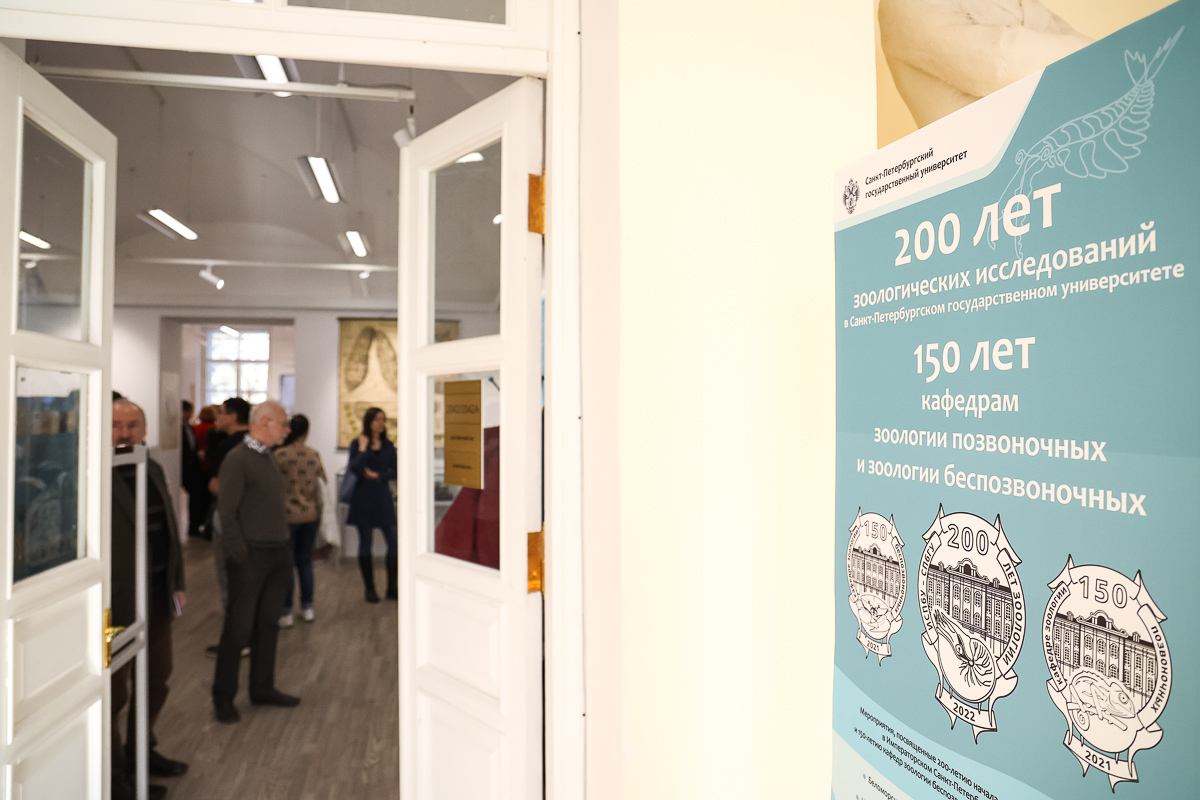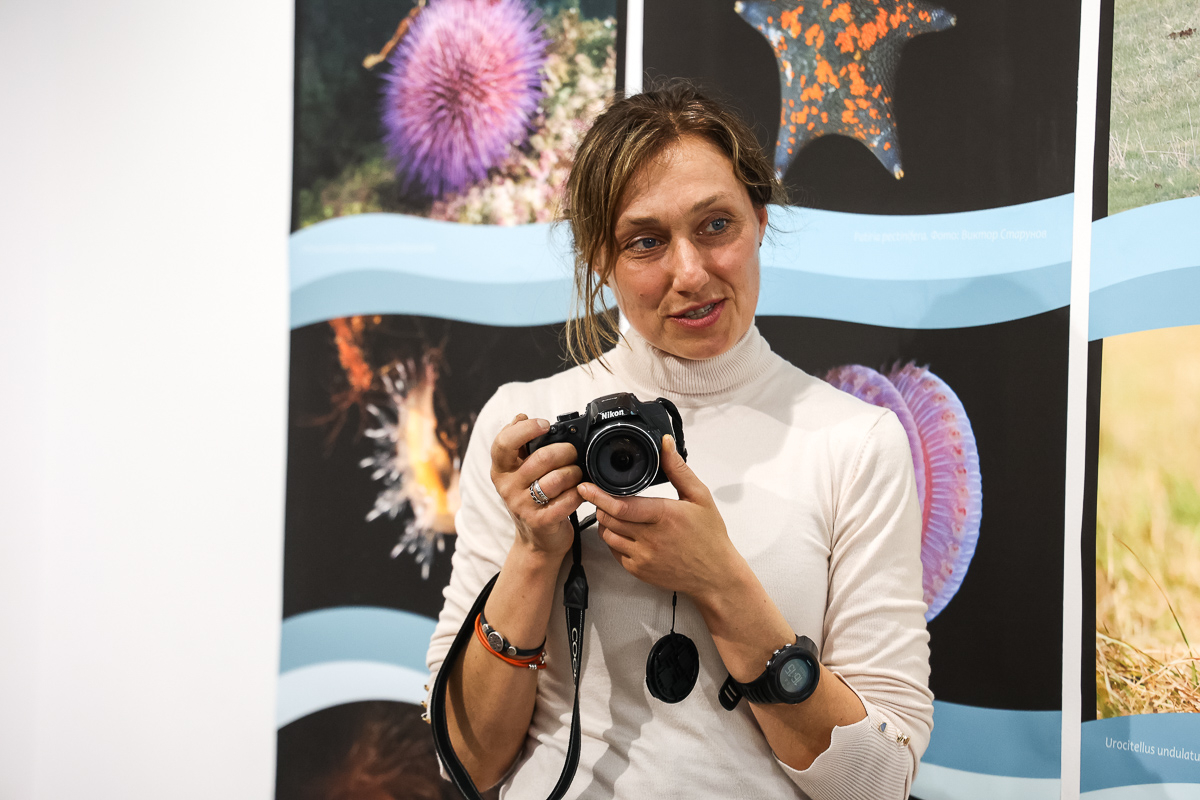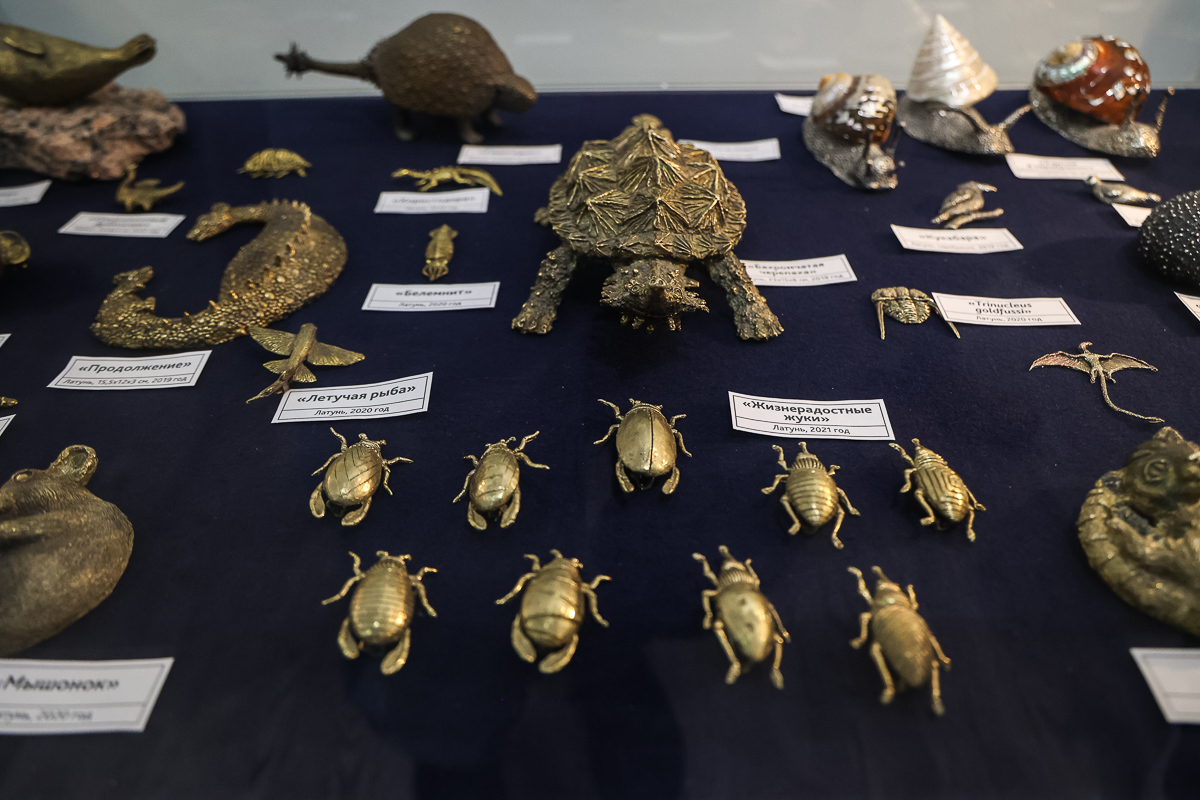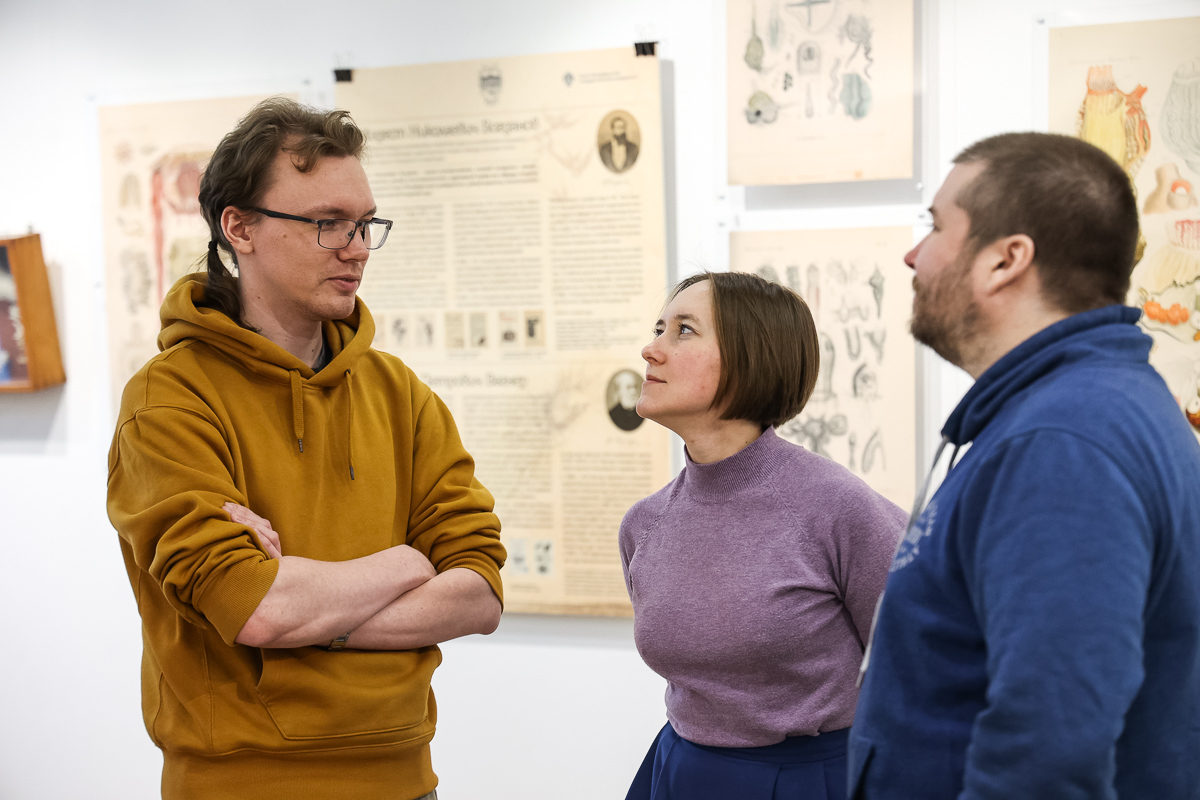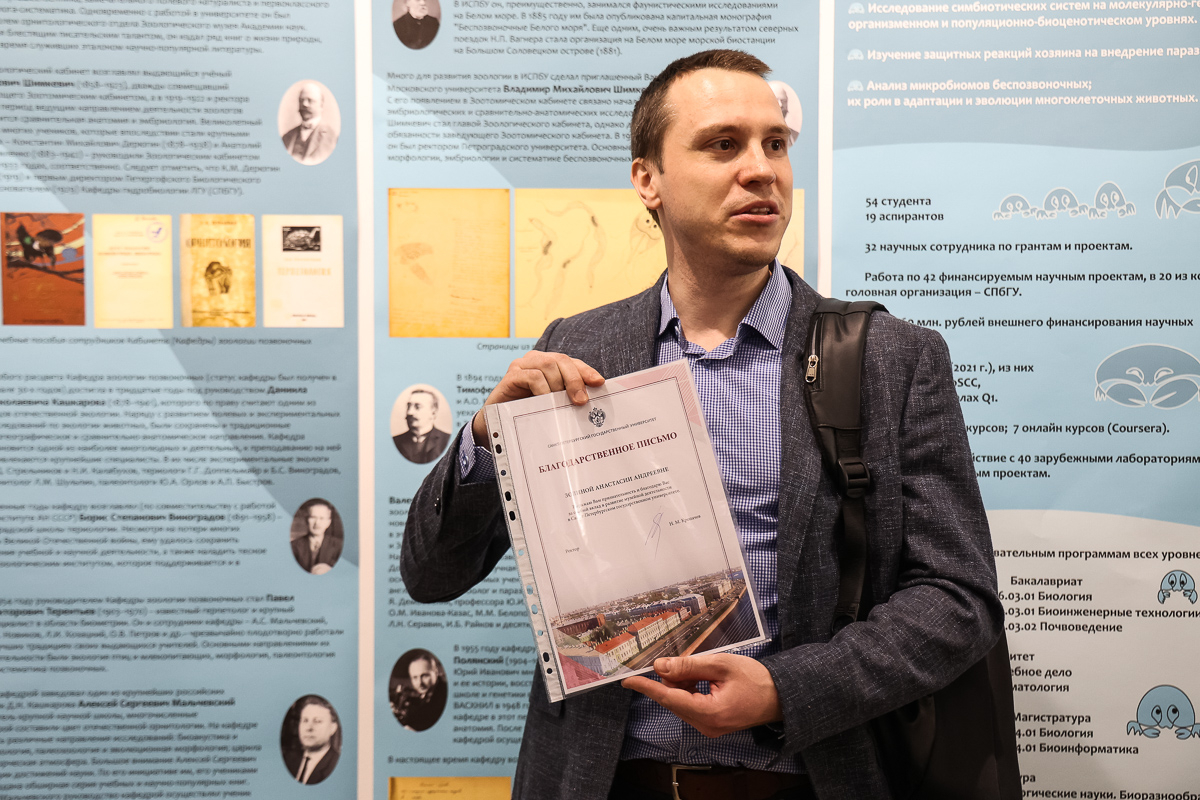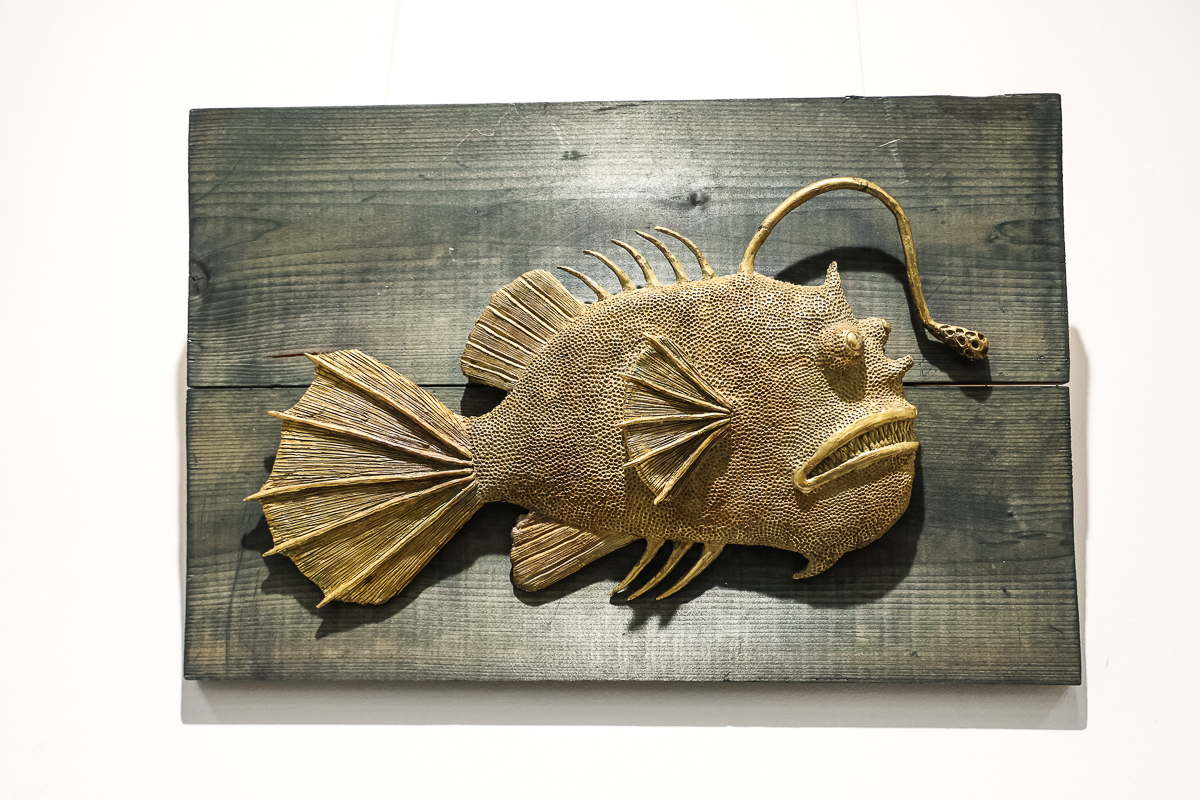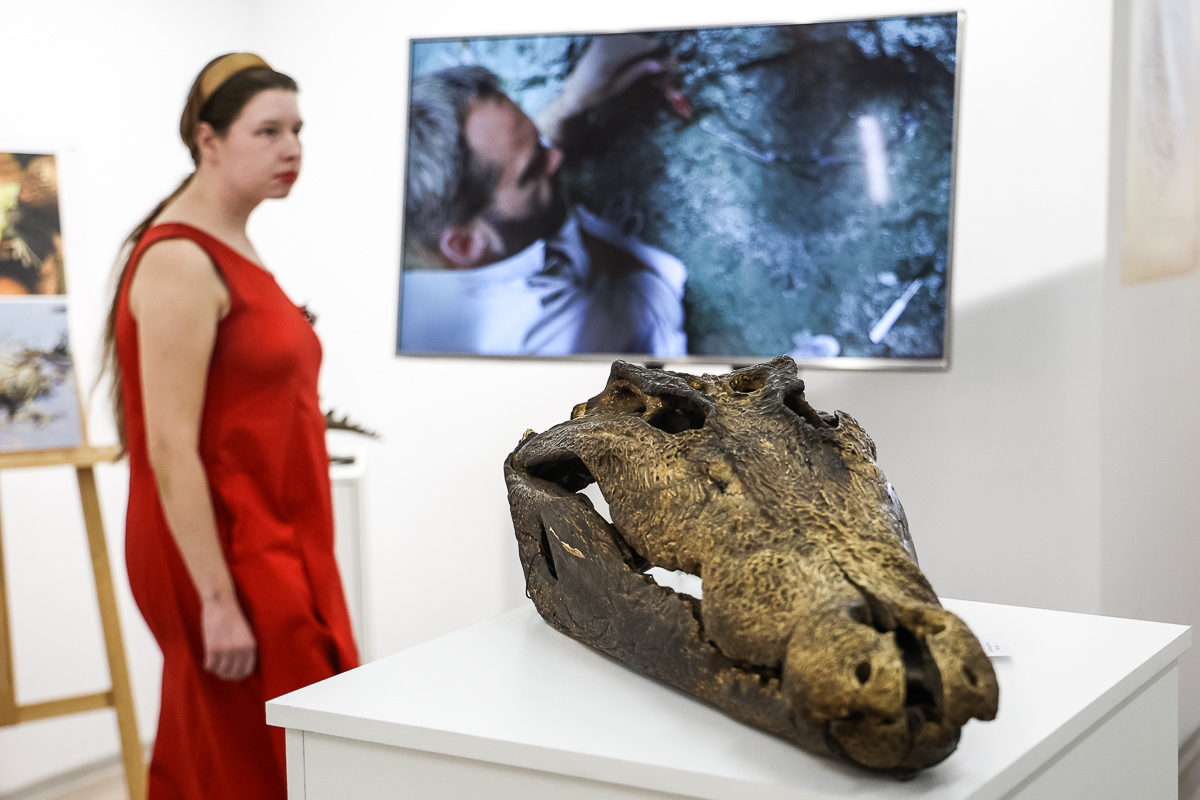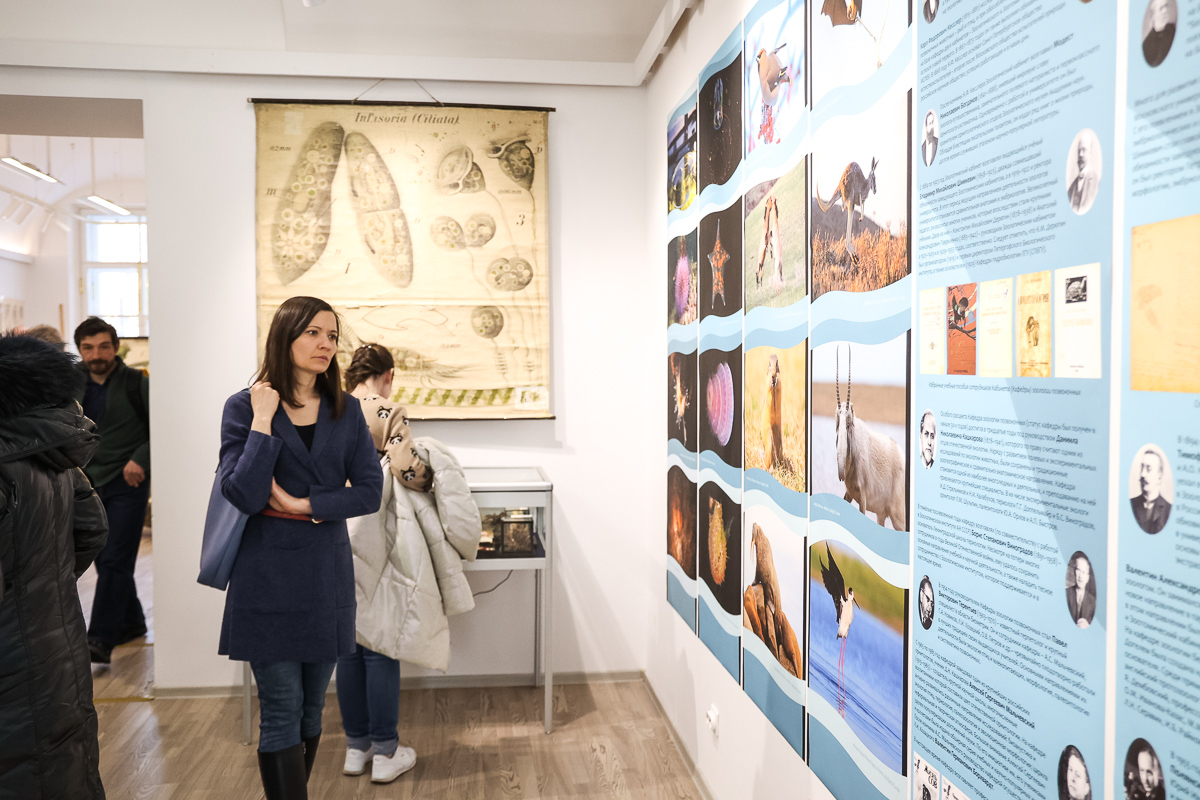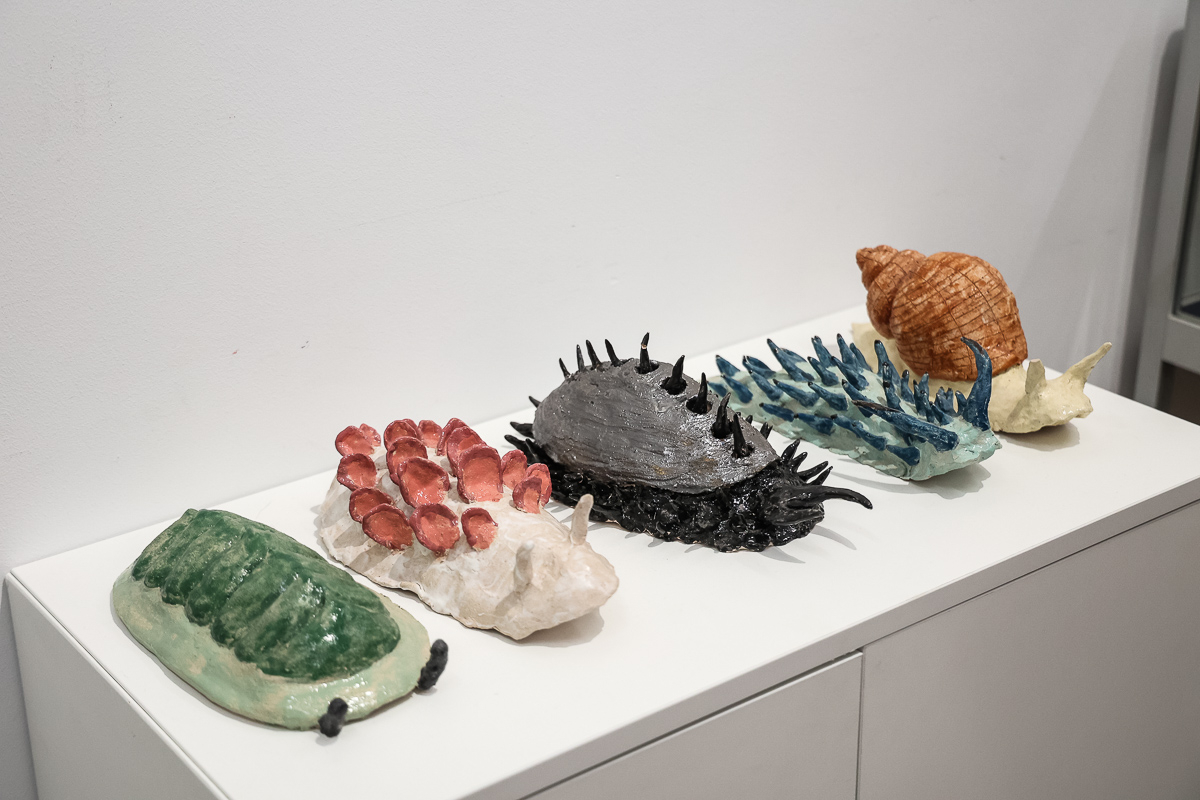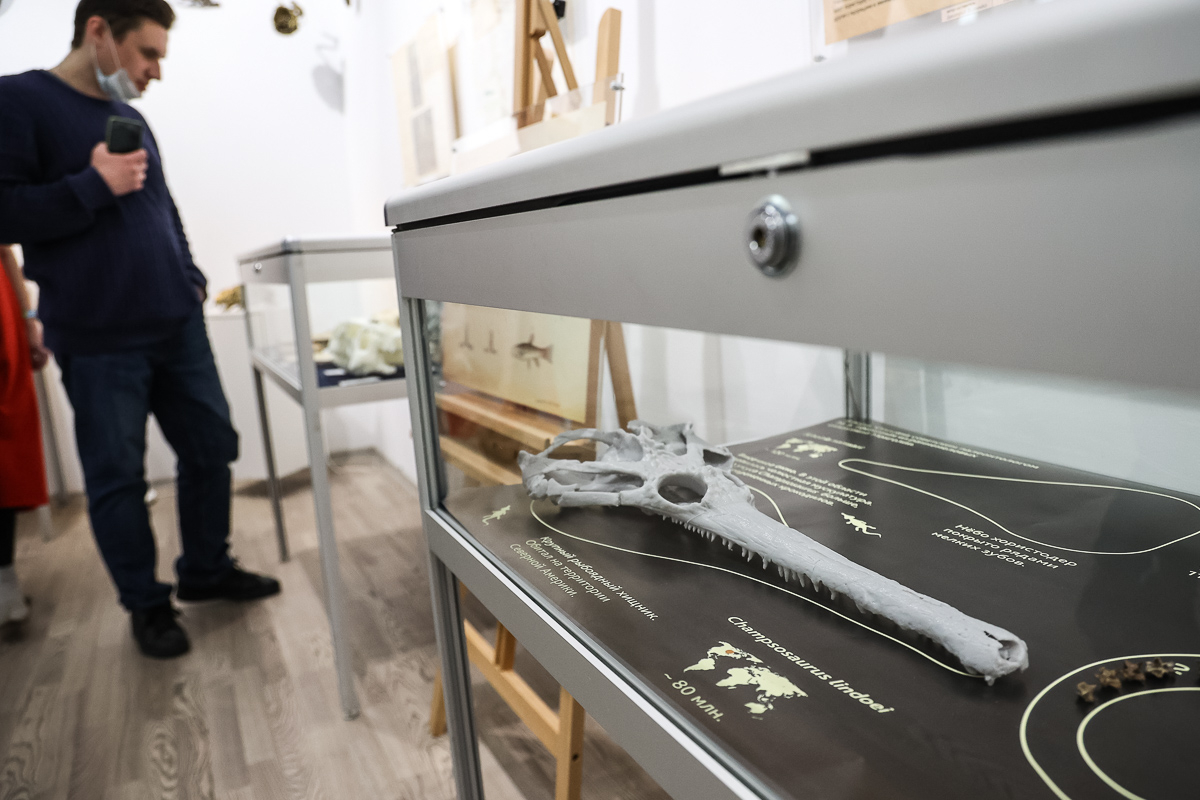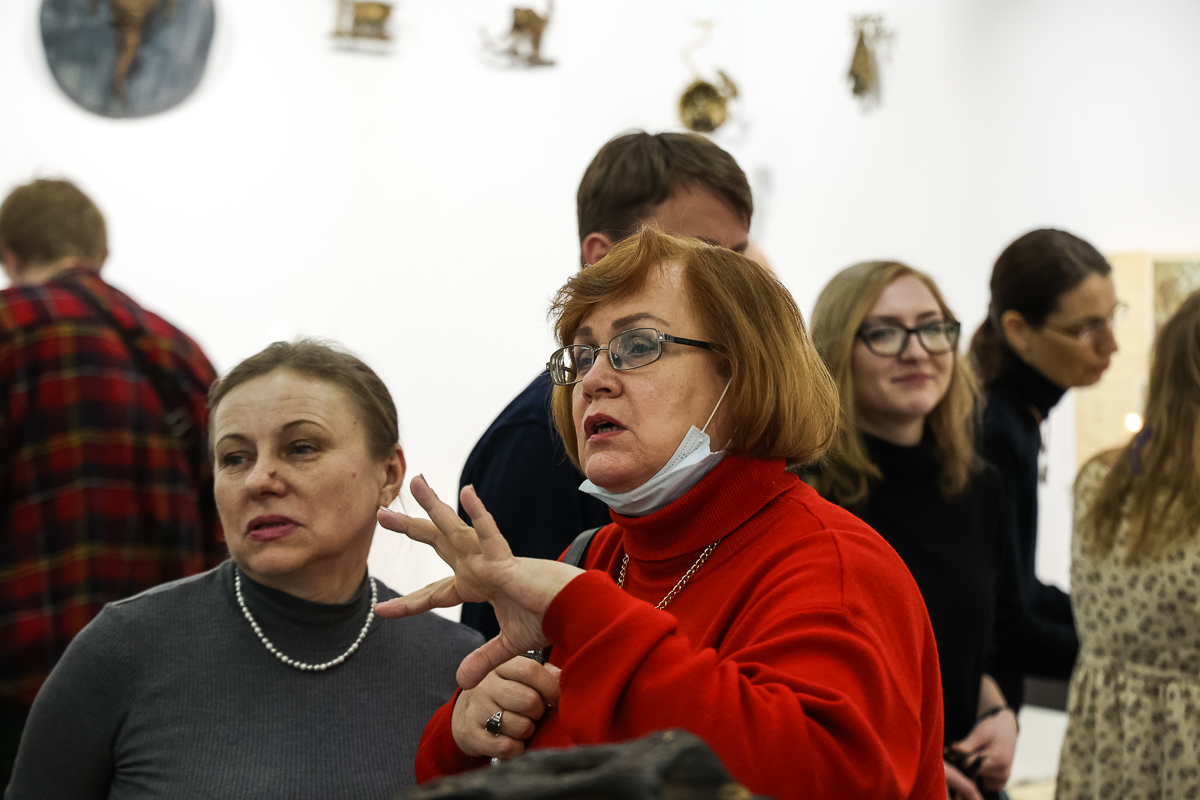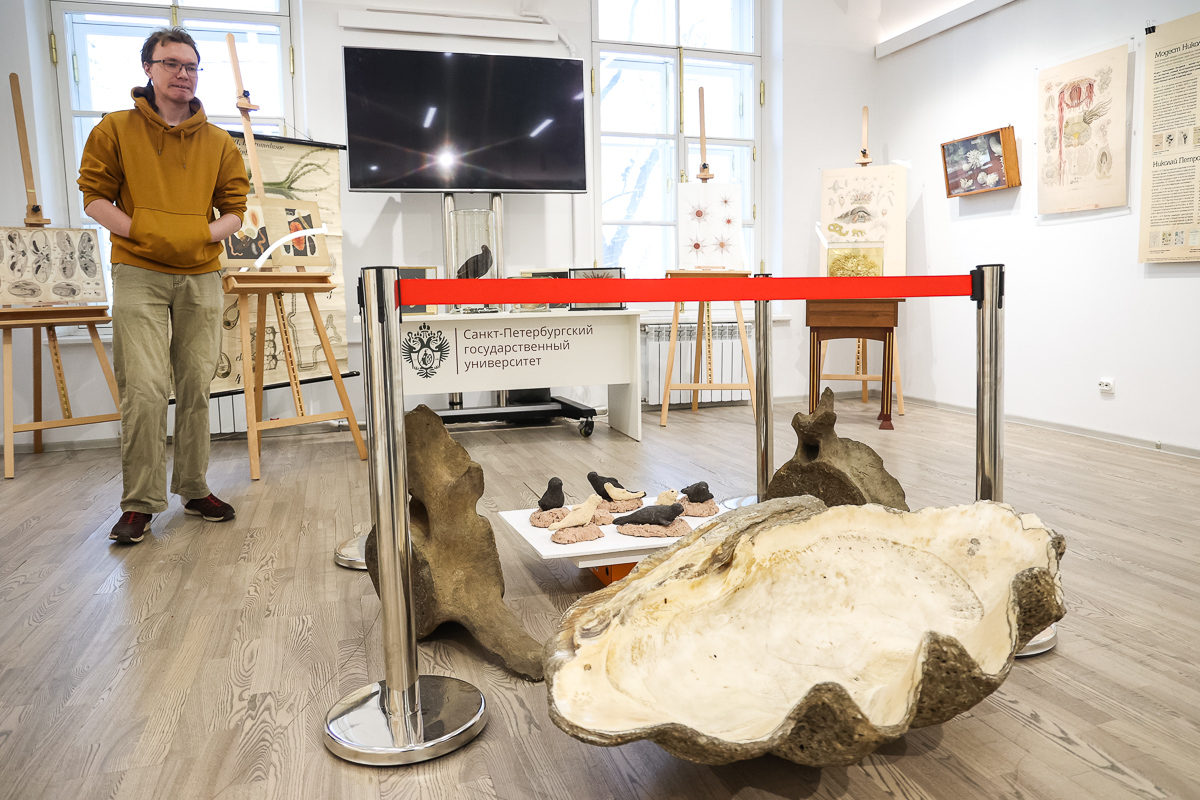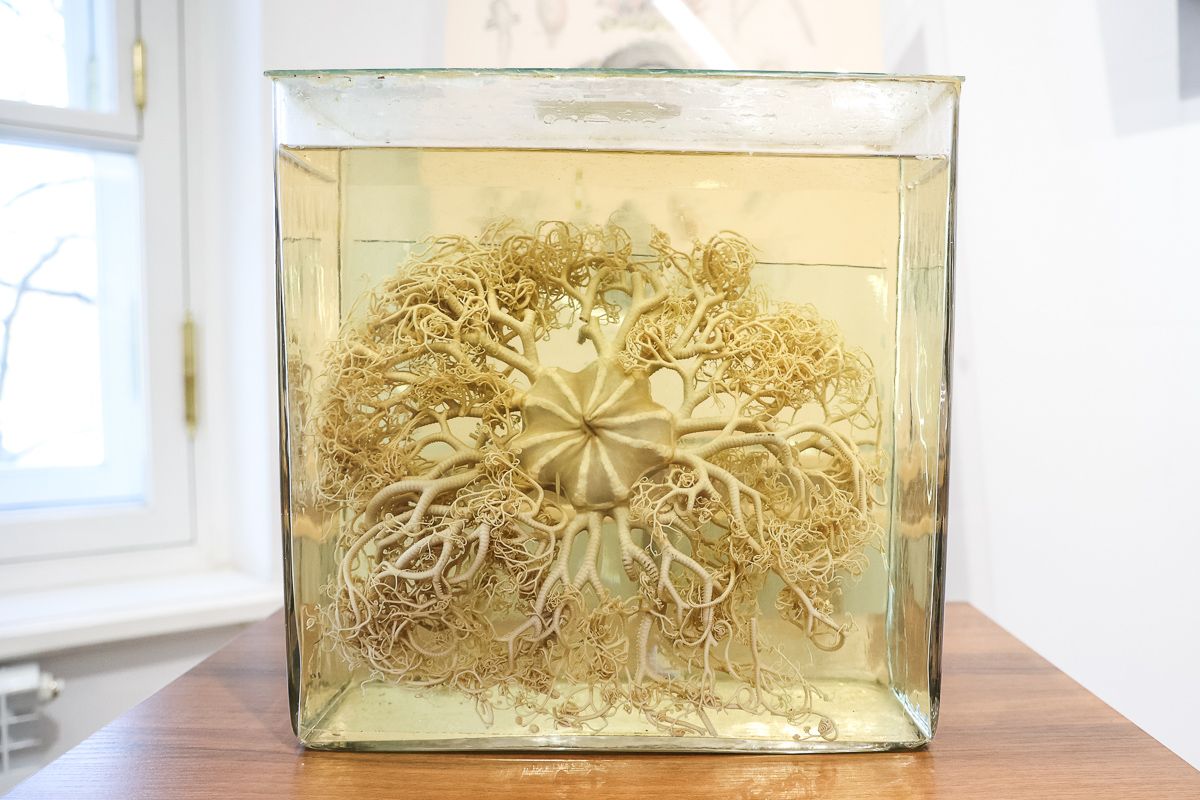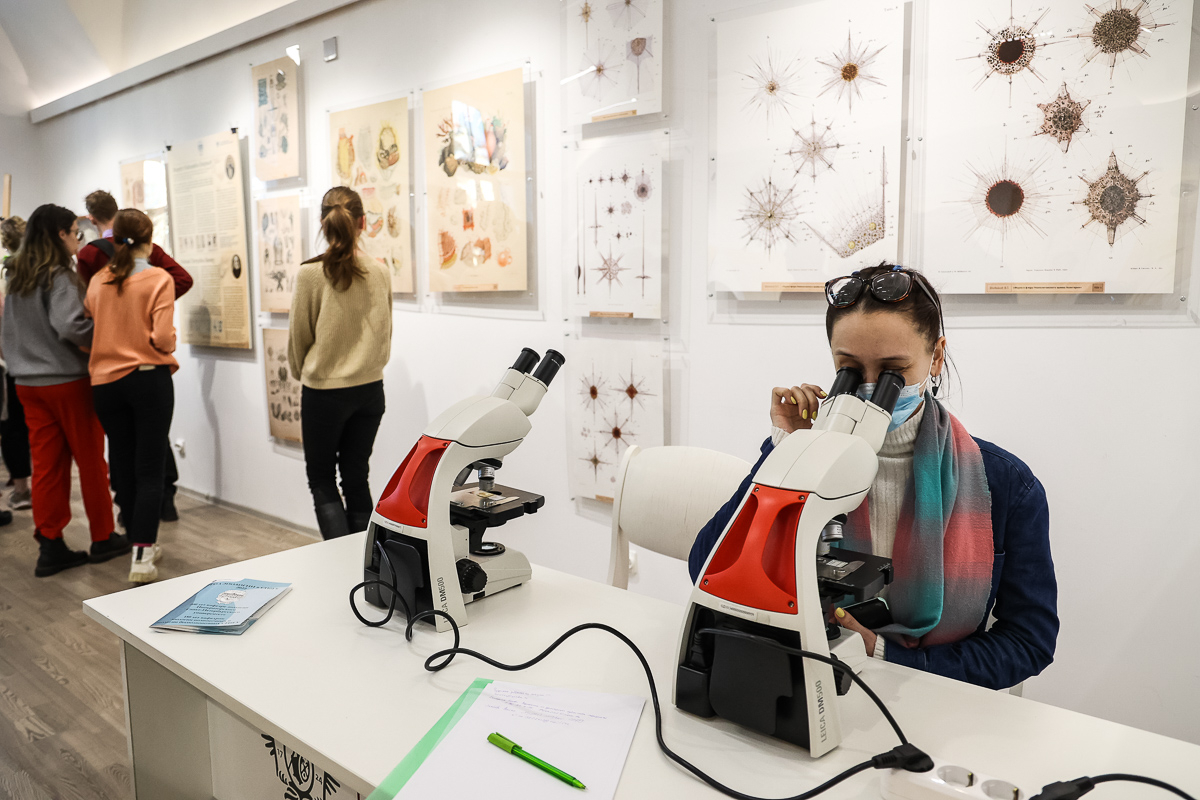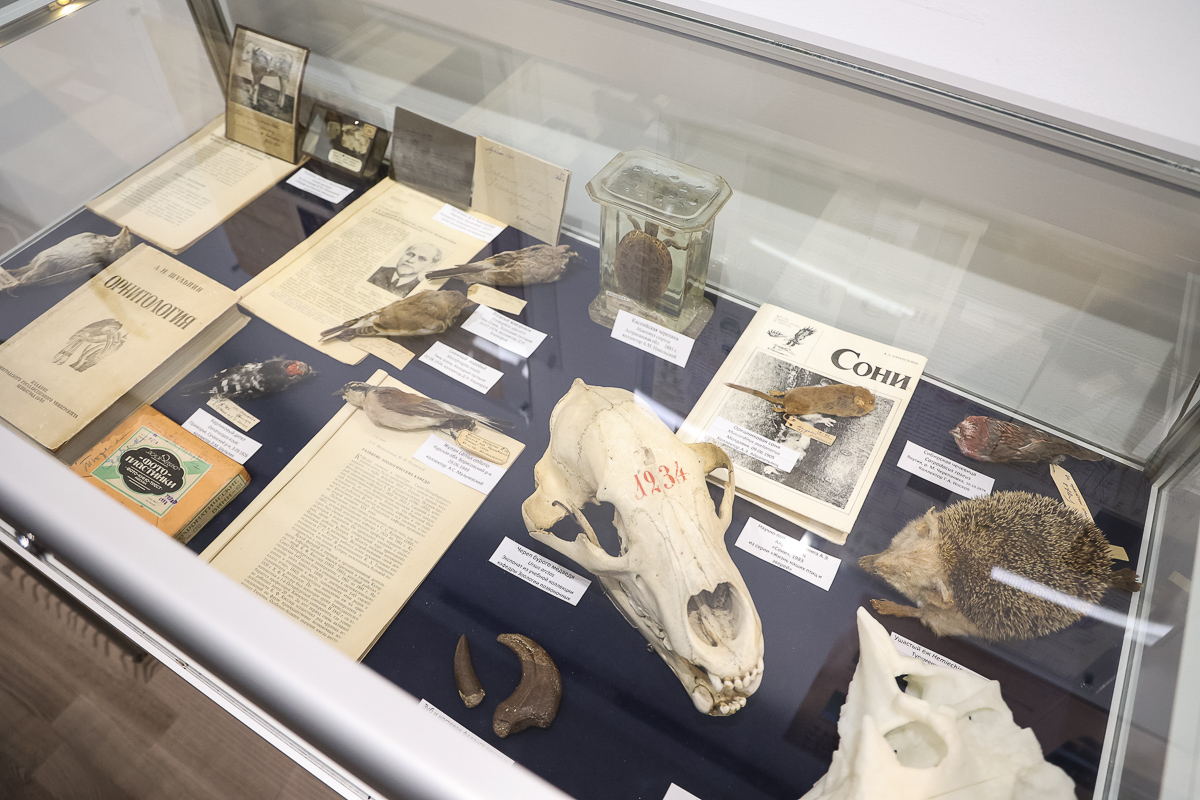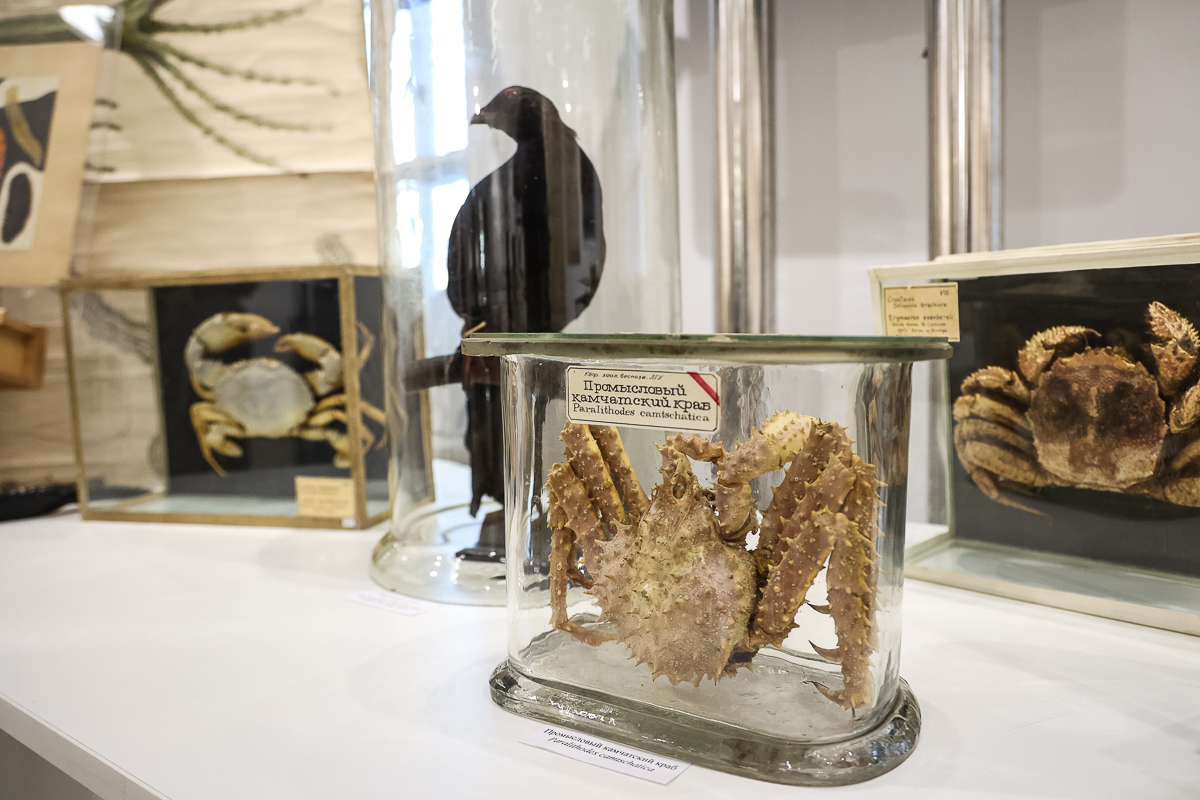200 years of zoology on display at the University
As part of the celebration of the Year of Zoology, an exhibition dedicated to two anniversaries of zoological education opened at St Petersburg University. The exhibition provides visitors with an insight into the work of distinguished biologists of the past who studied vertebrate and invertebrate animals, as well as the achievements of contemporary scientific teams.
St Petersburg University launches the Year of Zoology
In 1822, the University for the first time in Russia established a separate academic and scientific department to study fauna diversity: previously zoology had been represented in the Natural History Departments where it had been taught together with mineralogy and other disciplines. Over 150 years ago, another landmark event occurred: the separation of the two cabinets — Zoological and Zootomic. From that moment the history of the two present-day departments — the Department of Invertebrate Zoology and the Department of Vertebrate Zoology — began at St Petersburg University.
According to Andrei Granovitch, Professor of St Petersburg University, Head of the Department of Invertebrate Zoology, this anniversary is a landmark event. There are not many educational and research institutions in the country, let alone departments with such a rich history. However, the dates are only an occasion to focus once again on the continuity of generations and traditions. ’Over this time, unique for Russia scholarly traditions and a special style of interaction between teachers and students have formed. This still helps to carry out scientific and educational activities as a unified team of young and experienced colleagues. At this exhibition, you will see what our teachers have built over these 200 years. Of course, it is a small part of what they have done, but even this makes it possible to understand how important the work of generations of zoologists was and how talented our teachers were. We try to stay up to par. It is very important and responsible to feel like successors of their work,’ said Andrei Granovitch. ’The Department of Vertebrate Zoology and the Department of Invertebrate Zoology are more than just science and teaching. It is already a kind of cultural and historical phenomenon. It would be interesting to specifically look into it and be surprised at how effective it has been over the years.’
Zoology is very different now. It couldn’t have remained the same as in the 19th century. When you look at the modern work of our staff, at first you don’t even understand what they do: bioinformatics, genome decoding, subtle biochemical and molecular genetic analyses. Is that zoology?
Andrei Granovitch, Professor of St Petersburg University, Head of the Department of Invertebrate Zoology
’It is only when you look closely that you realise that we have reached a new level. This can be conventionally called integrative biology, involving a holistic understanding of the functioning of our zoological objects at different levels of biological organisation. This is what modern zoology has become, with almost all the latest "omics" technologies, genomics, transcriptomics, proteomics, metabolomics, methods of developmental biology, cell biology, physiology, 3D modelling, and, of course, digital approaches in all areas of activity,’ said Andrei Granovitch.
Nikita Chernetsov, Professor in the Department of Vertebrate Zoology, who also heads the Zoological Institute of the Russian Academy of Sciences, which is traditionally one of the major employers for zoology graduates, spoke at the opening ceremony. He stressed that both divisions, which study vertebrates and invertebrates, are of great importance for the Institute and the anniversary of zoological education is therefore a significant event for all zoologists of the Academy of Sciences.
Following the theme of traditions of zoological education at the University, Gennady Cherepanov, Professor of St Petersburg University, Head of the Department of Vertebrate Zoology, said that the exhibition shows the connection between what scientists were doing 200 years ago and the research that zoologists are working on nowadays.
Without knowledge of our University’s history, we cannot predict the future and our present will be incomplete. This exhibition therefore enables you to learn about the history of zoology at St Petersburg and Leningrad University.
Gennady Cherepanov, Professor of St Petersburg University, Head of the Department of Vertebrate Zoology
Professor Cherepanov also added that a special feature of the exhibition is the combination of scientific research and artistic perception of zoological objects, not by graphic artists and illustrators, but by graduates of the programme "Biology" of the University.
One of the exhibits at the exhibition was a series of posters illustrated by Professor Vladimir Shevyakov, who had run the Zootomical Cabinet from 1904 to 1911 and, in effect, had laid the foundations for the largest school of protistology in Russia. The drawings were made as part of the work on the monograph ’Radiolaria of the Gulf of Naples’. Professor Shevyakov was a talented artist and was able to sketch the structure of the smallest, a fraction of a millimetre in size, single-celled marine organisms with a very complex, geometrically regular skeleton. The precision and beauty of the illustrations will impress not only scientists, but also visitors to the exhibition whose professional activities are not connected with biology.
Here guests will also be able to see radiolaria micro preparations themselves under a microscope with 100x magnification and appreciate the complexity of the work done. The exhibition also includes a variety of preparations of vertebrate and invertebrate organisms, pages from working notebooks, and the works of the University’s biologists. The exhibition will run until the end of the month. On 28 April, the next event of the Year of Zoology at St Petersburg University will be held — a scientific-historical session "Zoology at St Petersburg University: History and Modernity". This will present modern ’perspectives’ of the two zoology departments and the history of the Department of Zoology at St Petersburg Imperial University, its Zoological and Zootomic Cabinets.


